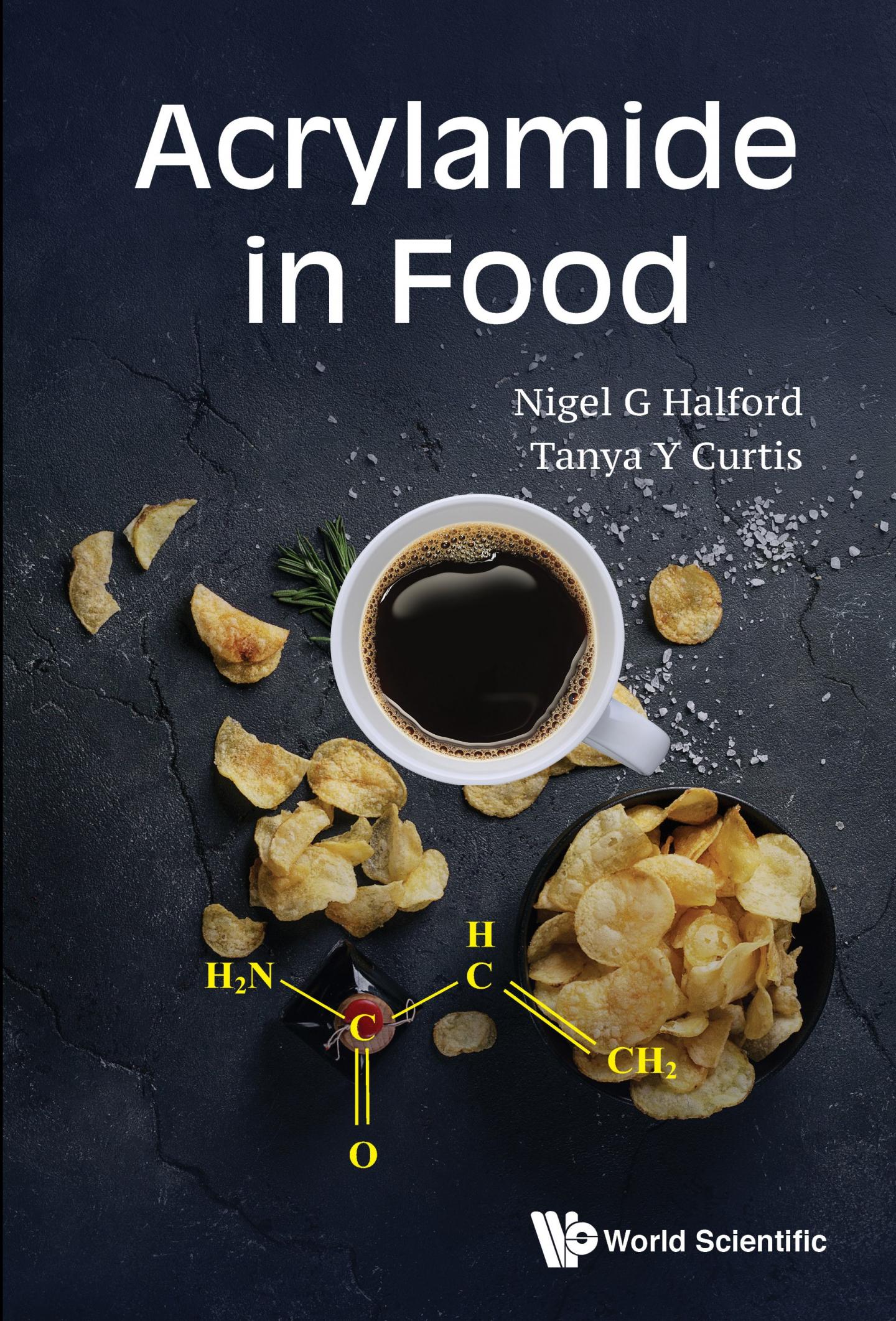And what can be done about it

Credit: World Scientific
Acrylamide is described as ‘extremely hazardous’ and ‘probably carcinogenic to humans’. Its presence in popular foods, including fried, baked, roasted and toasted potato and cereal products, as well as coffee, has become one of the most difficult issues facing the food industry, its supply chain, retailers and regulators. Written by internationally-renowned experts in the field, this book covers the issue from crop genetics to agronomy, biotechnology, food processing and regulation.
Processing contaminants, defined as undesirable chemicals that are not present in raw food but are produced during cooking or processing, are becoming an increasingly difficult problem for the food industry. Foremost of these is acrylamide, a carcinogenic and neurotoxic chemical that was only discovered in food in 2002. Food manufacturers must comply with ever-tightening regulations on the presence of acrylamide in their products while retaining the colours, flavours and aromas that define their brands and are demanded by consumers. Measures to reduce acrylamide formation involve crop genetics, agronomy, biotechnology and food processing, and are described in detail in the book.
This book, written by leading experts, tells you all you need to know about acrylamide in food, in a detailed but accessible manner. Acrylamide in Food highlights the emerging topic of processing contaminants, the complexity of food composition and how it is affected by high-temperature cooking and processing, and the multi-disciplinary nature of approaches being taken to address the problem. It also shows in stark detail how compliance with regulations is an important aspect of food industry sustainability, something that all stakeholders in the food supply chain need to take on board.
This book retails for US$78 / £70 at major bookstores and online. To know more about the book visit http://www.
###
About the Authors
Professor Nigel Halford is a Senior Scientist at Rothamsted Research, the UK’s largest and oldest crop and agricultural research centre. Professor Halford obtained his first degree from the University of Liverpool in 1983 and a Master’s Degree from University College London in 1984. He studied the genes encoding a family of wheat seed proteins for his PhD while at Rothamsted in the 1980s, then spent 11 years at Long Ashton Research Station near Bristol before returning to Rothamsted in 2002. He is the author of more than 140 scientific papers, has written books on ‘Genetically Modified Crops’, now in its third edition, and ‘An Introduction to Bioenergy’, and edited books on ‘Protein Phosphorylation in Plants’, ‘Plant Biotechnology’, and ‘Energy Crops’. His research programme concerns the genetics of metabolic regulation in crop plants, how plant metabolism is affected by environmental stress and crop management, and how it can be manipulated to improve crop yield, quality, and food safety. A major strategic application of this work is reducing the potential for acrylamide formation in wheat, potato and rye products.
Professor Halford is a Visiting Professor at Shanghai Academy of Agricultural Sciences and was awarded The Magnolia Silver Award by the Shanghai Municipal People’s Government in 2012. He is also Special Professor at the University of Nottingham, a former member of the UK’s Advisory Committee for Animal Feedingstuffs (ACAF), and a Fellow of the Royal Society of Biology. He is currently supported at Rothamsted Research by the Biotechnology and Biological Sciences Research Council of the United Kingdom through the Designing Future Wheat Programme.
Dr Tanya Curtis graduated from the Agricultural University of Plovdiv in 1998 with an MSD in Agronomy. The following year she was awarded a Master’s Degree in Agricultural Engineering and Plant Genetics. During her studies she undertook secondments at Vrije Universiteit Amsterdam and Vrije Universiteit Groninghen in the Netherlands. Subsequently she worked as a volunteer in plant virology at Imperial College London. She studied for her doctorate at Rothamsted Research and the University of Reading, and was awarded her PhD by the University in 2010 for her thesis entitled ‘Genetic and environmental factors controlling acrylamide formation in wheat and rye products’. By the end of that project, Dr Curtis was a recognised international expert on the acrylamide issue. She continued to build her reputation through her work on the project ‘Genetic improvement of wheat to reduce the potential for acrylamide formation during processing’, which was funded by the Biotechnology and Biological Sciences Research Council of the United Kingdom and a consortium of businesses and organisations from the wheat supply chain, and which ran at Rothamsted Research from 2011 to 2016.
She is now Director of Curtis Analytics in Harpenden, UK, providing analyses of acrylamide precursor concentrations in a range of food matrices.
About World Scientific Publishing Co.
World Scientific Publishing is a leading international independent publisher of books and journals for the scholarly, research and professional communities. World Scientific collaborates with prestigious organisations like the Nobel Foundation and US National Academies Press to bring high quality academic and professional content to researchers and academics worldwide. The company publishes about 600 books annually and 146 journals in various fields. To find out more about World Scientific, please visit http://www.
For more information, contact Amanda at [email protected].
Media Contact
Amanda Yun
[email protected]
Original Source
https:/




